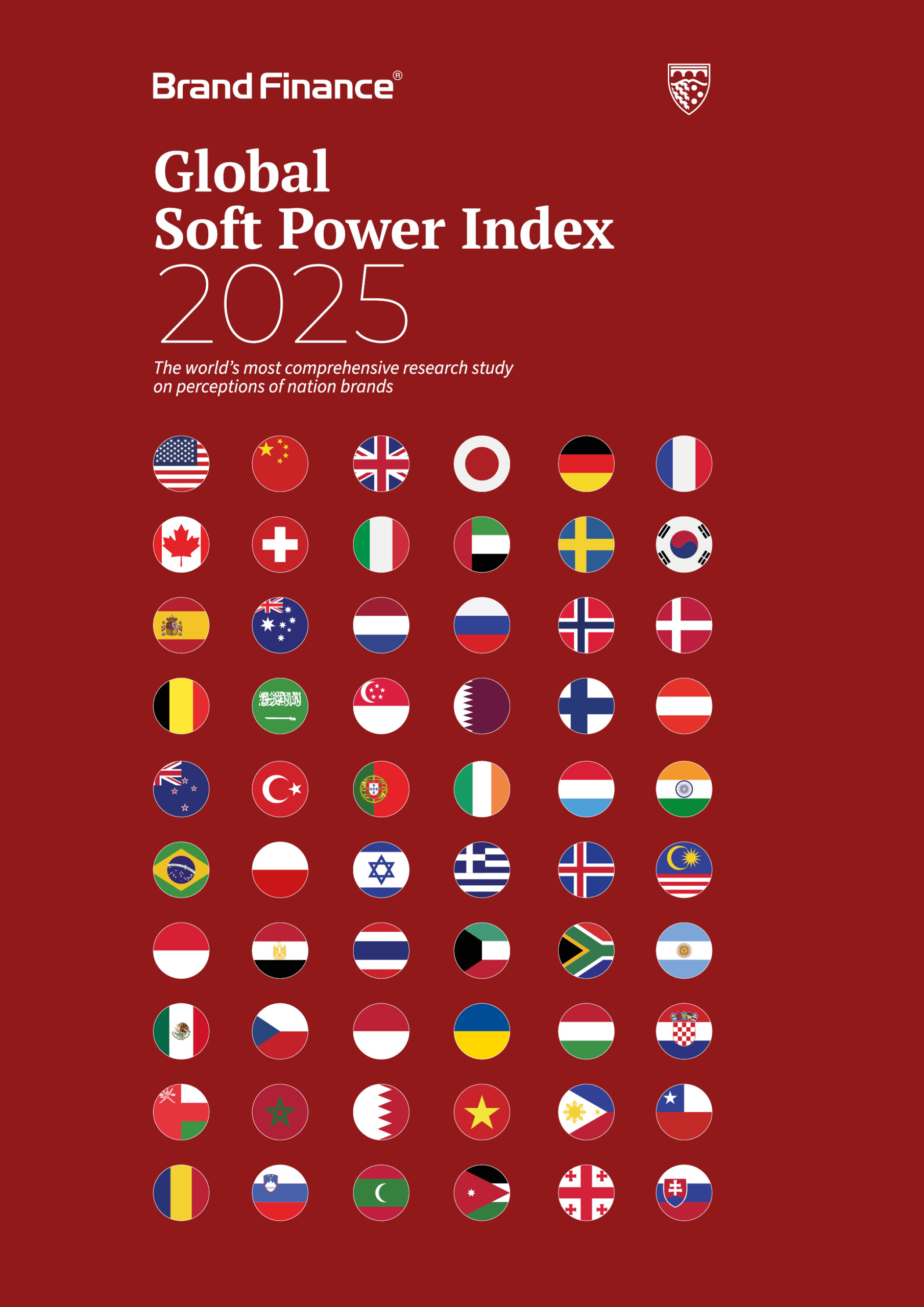This article was originally published in the Brand Finance Global Soft Power Index 2025

Distinguished Fellow
& Former Director-General,
Royal United Services
Institute (RUSI)
Critics of the concept of Soft Power normally show that they don’t understand it very well. But neither do many who critique the unsubtle muscularity of so-called ‘Hard Power’ – so readily equated with military force.
The best analysts over the last century and a half who have been interested in ‘power’ as a fundamental reality of politics have well understood that manifestations of power were best described with some subtlety.
And though the labelling of ‘Soft Power’ only goes back to the work of Joe Nye and others around the year 2000, the most distinguished earlier writers on ‘power’ like Reinhold Niebuhr, Hans Morgenthau, Martin Wight or Henry Kissinger were well aware of how ‘softly’ power could most effectively be exercised. They didn’t bother to label it as Soft Power because, for them, that was implicit in the whole conception.
In part, they didn’t label it because these writers were part of a dominant Western political culture, where the broader circumstances in which military, economic or diplomatic coercion was exercised were so obviously favourable – through things like international institutions and legitimacy, law, political consensus, control of ‘the narrative’ – that Soft Power didn’t need to be labelled. It was the existential reality of the twentieth-century world.
But Soft Power now deserves its label and more detailed study precisely because, in the twenty-first century, the formerly powerful states and societies can no longer take it for granted. They have woken up to the fact that those intangible elements such as international norms, culture, conceptions of law and legitimacy and the all-important ‘narrative’, are no longer existential facts of world politics but rather have become arenas of intense international competition in themselves.
So, it matters to recognise ‘Soft Power’ as an important part of fundamental ‘power’ in the contemporary world and at least seek to understand it better. Given the multitude of guises in which Soft Power can manifest itself, it remains a moot point whether or not it can be politically mobilised to some national advantage. But it deserves to be probed more deeply, if only to determine which manifestations of Soft Power might be promoted or else left well alone.
Two conclusions follow from this: one of theoretical importance, the other of very practical application.
Firstly, the theoretical imperative is to understand power as a spectrum among those players – let’s say governments or societies – who relate to each other in multiple ways.
In themselves the ‘instruments’ of power are neither hard nor soft; it depends on how they are used. It is simplistic to assume that at the hard end of the spectrum all is military coercion; and at the soft end all is diplomatic persuasion. Any governmental levers of power could be used in a coercive – hard – way, not just those of direct military or economic pressure.
A government might threaten to cancel cultural exchanges, boycott the Olympics or the FIFA World Cup, revoke educational visas and so on. In 2020, the Chinese Government ‘punished’ Australia for its human rights criticisms in a number of cultural areas and engineered an effective boycott of many Western brands in Chinese retail and service industry markets. Regardless of the actual instruments used, in other words, the Hard Power end of the spectrum emphasises pressure and transactionalism, a direct attempt to influence the behaviour of another player. That’s power projection.
The Soft Power end of the spectrum, by contrast, is characterised by power magnetism; demonstrating by its very existence a magnetism that often promotes imitation. Western military forces, for example, not only spend a lot of time performing Soft Power missions – humanitarian assistance, protocol operations, port visits and so on – but their demonstrable ability to fight wars also promotes a widespread desire to imitate them, in their structure, organisation, working practices and so on.
Because they are good at Hard Power when called upon to exercise it, they turn out to be a valuable Soft Power asset even when they are not. The natural magnetism of a society to the world outside has been shown to depend on a few key perceptions; is it a stable and lawful society?; is it prosperous?; is it a society of opportunity? And inside those grand generalisations are a multiplicity of cultural, institutional and commercial reputations that feed the national Soft Power magnet to sustain its strength.
Not least, the power spectrum is dynamic. Power exercised toward the harder end is normally inefficient unless it is backed up by many Soft Power elements. And Soft Power is demonstrably more magnetic when it arises from a source that has some ability to go towards the hard end of the spectrum in other circumstances.
Secondly, the practical application of understanding Soft Power better poses the knotty question of how far it can be mobilised to some national advantage. For years British governments have spent very little promoting Soft Power but still Britain has an enviable place in most global Soft Power rankings.
Other countries spend a great deal more but have not much improved their international Soft Power reputations in ways that really matter. But this situation may be changing fast as the global shifts in world power emphasise how quickly the dictators have become militarily and economically coercive. When dictators equip themselves for the Hard Power end of the spectrum, they may get better value from their recent big investments in Soft Power, promoting their own society and its narratives.
For a free society competing on these terms, the imperative is to recognise the different levels of potential mobilisation of Soft Power assets.
Some are under the immediate or close control of government and can be promoted directly. Others depend on an arms-length relationship with government but can nevertheless benefit from a government’s attention.
But the greatest and most important Soft Power assets grow freely from the free society from which they spring. In a world where democracy itself is now in peril, truly democratic governments have to think very carefully about how they interact with their own civil society and how they promote their own political culture.
That’s not an argument about public money or scarce resources, so much as a better understanding of the ways government affects the fundamental institutions of the country. “Only those institutions are loved that touch the imagination,” as the celebrated historian R. H. Tawney wrote long ago.

